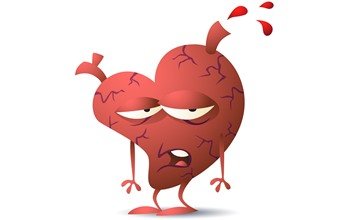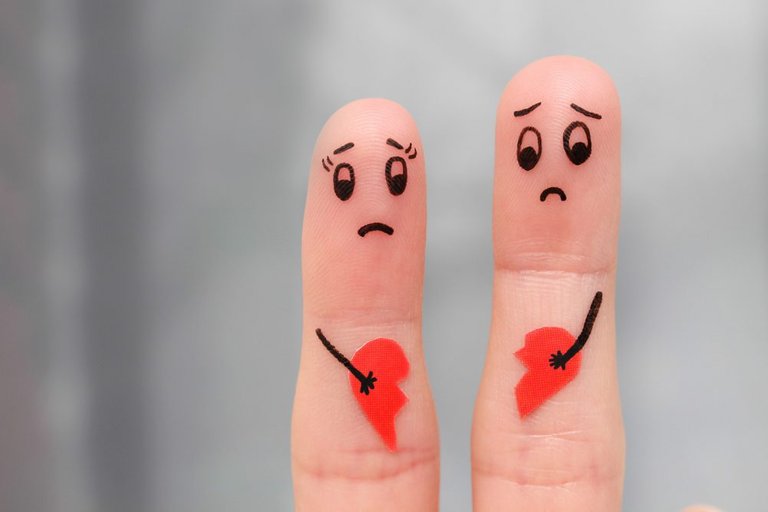
Stress cardiomyopathy, also referred to as the “broken heart syndrome,” is a condition in which intense emotional or physical stress can cause rapid and severe heart muscle weakness (cardiomyopathy). This condition can occur following a variety of emotional stressors such as grief (e.g. death of a loved one), fear, extreme anger, and surprise. It can also occur following numerous physical stressors to the body such as stroke, seizure, difficulty breathing (such as a flare of asthma or emphysema), or significant bleeding.
-!- What are the symptoms of stress cardiomyopathy? 
Patients with stress cardiomyopathy can have similar symptoms to patients with a heart attack including chest pain, shortness of breath, congestive heart failure, and low blood pressure. Typically these symptoms begin just minutes to hours after the person has been exposed to a severe, and usually unexpected, stress.
-!- Is stress cardiomyopathy dangerous? 
Stress cardiomyopathy can definitely be life threatening in some cases. Because the syndrome involves severe heart muscle weakness, patients can have congestive heart failure, low blood pressure, shock, and potentially life-threatening heart rhythm abnormalities. The good news is that this condition improves very quickly, so if patients are under the care of physicians familiar with this syndrome, even the most critically ill tend to make a quick and complete recovery.
 BROKEN HEART SYNDROME
BROKEN HEART SYNDROME
How does sudden stress lead to heart muscle weakness?
First, it is important to understand what “stress” is. “Stress” refers to the body’s response to things it perceives as abnormal. These abnormalities can be physical such as high body temperature, dehydration, or low blood sugar, or can be emotional, such as receiving news that a loved one has passed away. When these abnormalities occur, the body produces various hormones and proteins such as adrenaline and noradrenaline which are meant to help cope with the stress. For example, if a person is suddenly threatened and fears physical harm, the body produces large amounts of adrenaline to help that person either defend himself/herself or run faster to escape the danger. With stress cardiomyopathy, we believe that the heart muscle is overwhelmed by a massive amount of adrenaline that is suddenly produced in response to stress. The precise way in which adrenaline affects the heart is unknown. It may cause narrowing of the arteries that supply the heart with blood, causing a temporary decrease in blood flow to the heart. Alternatively, the adrenaline may bind to the heart cells directly causing large amounts of calcium to enter the cells which renders them temporarily dysfunctional. Whichever the mechanism, it appears that the effects of adrenaline on the heart in this syndrome are temporary and completely reversible. As will be discussed further in question , one of the main features of this syndrome is that the heart is only weakened for a brief period of time and there tends to be no permanent or long-term damage
.
-!- How does stress cardiomyopathy differ from a heart attack? 
Stress cardiomyopathy can easily be mistaken for heart attack. Patients with this syndrome can have many of the same symptoms that heart attack patients have including chest pain, shortness of breath, congestive heart failure, and low blood pressure. With a closer look, however, there are some major differences between the two conditions. First, most heart attacks occur due to blockages and blood clots forming in the coronary arteries, the arteries that supply the heart with blood. If these clots cut off the blood supply to the heart for a long enough period of time, heart muscle cells can die, leaving the heart with permanent and irreversible damage. This is completely different from what is seen with stress cardiomyopathy. First, most of the patients with stress cardiomyopathy that both we and others have seen appear to have fairly normal coronary arteries and do not have severe blockages or clots. Secondly, the heart cells of patients with stress cardiomyopathy are “stunned” by the adrenaline and other stress hormones but not killed as they are in heart attack. Fortunately, this stunning gets better very quickly, often within just a few days. So even though a person with stress cardiomyopathy can have severe heart muscle weakness at the time of admission to the hospital, the heart completely recovers within a couple of weeks in most cases and there is no permanent damage.

-!- I am under a great deal of stress every day. Is it possible that I have been walking around with stress cardiomyopathy and did not even know it?
While there is no debate that chronic stress can have effects on human health, stress cardiomyopathy appears to be a condition that comes on suddenly and unexpectedly and resolves quite quickly. If you are a person who frequently has symptoms of chest pain or shortness of breath when under significant stress, you should be evaluated by your doctor. He or she may want to perform some basic tests to make sure you are in god health. It is unlikely, however, if your symptoms have been going on for a while that you have stress cardiomyopathy.

-!- Who is at risk for getting stress cardiomyopathy?
Because stress cardiomyopathy is a relatively newly appreciated syndrome, we are only beginning to understand why it happens and who is most likely to get it. Most of the patients we have seen with it do not have a previous history of heart disease. It is quite clear from the available medical literature so far, however, that stress cardiomyopathy affects primarily women. In addition, it tends to occur most frequently in middle aged or elderly women (average age about 60). While it can also occur in young women and even in men, the vast majority of the patients we have seen with this are post-menopausal women. The exact reason for this is unknown, and further research will be necessary to help explain this observation.

-!- Once a person has had stress cardiomyopathy, will they get it again the next time they are under severe stress?
From what we have seen so far, the answer to this question appears to be no. While it is possible that the syndrome could recur, this is not what we have observed at our hospital. In the five years that we have been following patients with stress cardiomyopathy, none have experienced the syndrome a second time. Further, several of our patients went on to have other stressful events in their lives and none developed the syndrome again.

-!- If I have had stress cardiomyopathy, what is my long-term prognosis?
Because the heart muscle is not permanently damaged with this syndrome, patients typically make a rapid and complete recovery. From our experience and from what has been published by other groups, the long-term prognosis for patients with stress cardiomyopathy appears to be excellent.
Hi! I am a robot. I just upvoted you! I found similar content that readers might be interested in:
http://www.hopkinsmedicine.org/asc/faqs.html